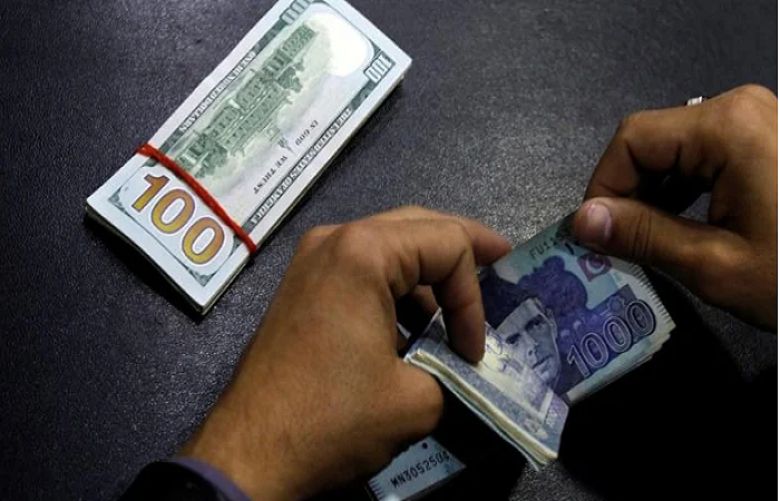The rupee lost over Rs2 against the dollar during interbank trade on Wednesday with analysts and currency dealers attributing it to fears over the delay in the finalisation of an agreement with the International Monetary Fund (IMF).
According to the State Bank of Pakistan (SBP), the local currency depreciated by Rs2.19, or 1.04 per cent, against the greenback and closed at Rs210.1.
It had closed at Rs207.91 on Thursday, according to the central bank.
The dollar has consistently risen in the currency market, but the inflow of $2.3 billion from China on June 23 changed the scenario as the rupee recovered Rs4.70 in a single session to Rs207.23 from Rs211.93.
However, the US dollar snapped the rupee’s rising streak and gained Rs2.38 in the interbank market on July 5, the first appreciation in the new fiscal year. Since then, the greenback has continued to rise.
The director of Mettis Global, a web-based financial data and analytics portal, Saad Bin Naseer, noted that the market had reopened after five days.
“The inflow of remittances was not as high as expected because of which the rupee is under pressure right now. This pressure will remain until the agreement with the IMF is finalised,” he said.
Analyst Komal Mansoor shared a similar view. She said that while inflows were limited, the dollar’s rally today was based on the fear that the IMF deal would “not materialise any time soon”.
The list of “prior actions” demanded by the international lender keeps increasing and is unmanageable, she said. “Analysts are foreseeing a high probability of default this year,” Mansoor added.
On the other hand, Zafar Paracha, the secretary general of the Exchange Companies Asso¬ciation of Pakistan, attributed the rupee’s fall to the central bank’s allowing payments for imports.
The demand for dollars was “very high” in interbank because the SBP had given permission for import payments that were overdue, he said.
He also cited the delay in the IMF agreement as the reason for the rupee’s decline. The market had “no hope” that the money would be received any time soon because there were new demands every day, he said.
“Statements from ministers also make it seem like they are tired of the IMF. This is not a good situation, and the political situation is not very good for the economy.
“Unless we get a big amount from IMF or friendly countries, the situation will not improve. The impression built earlier that we will get money from the IMF has been reversed.”







